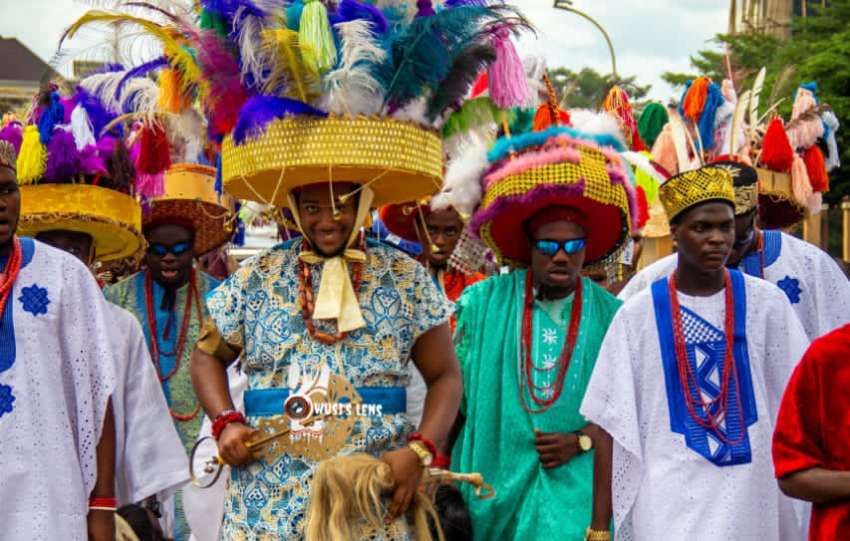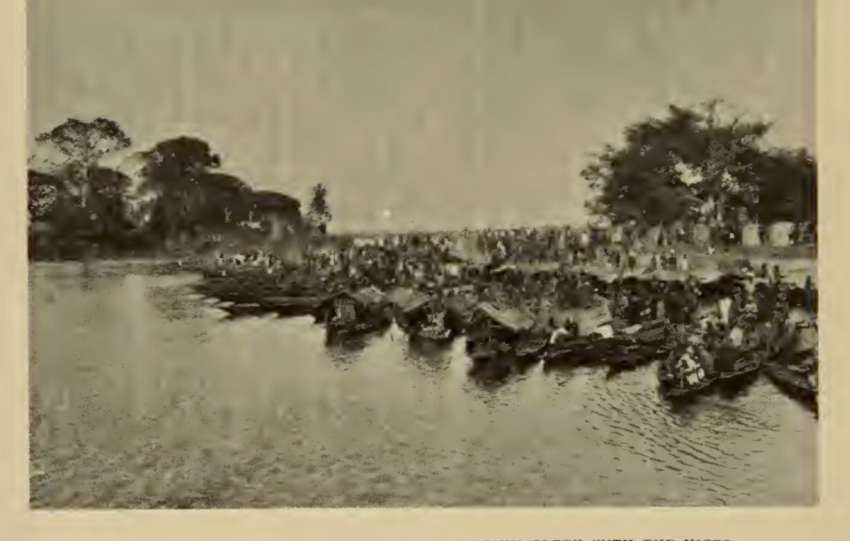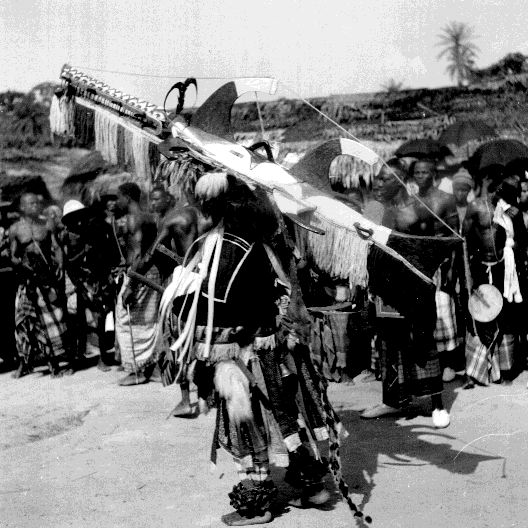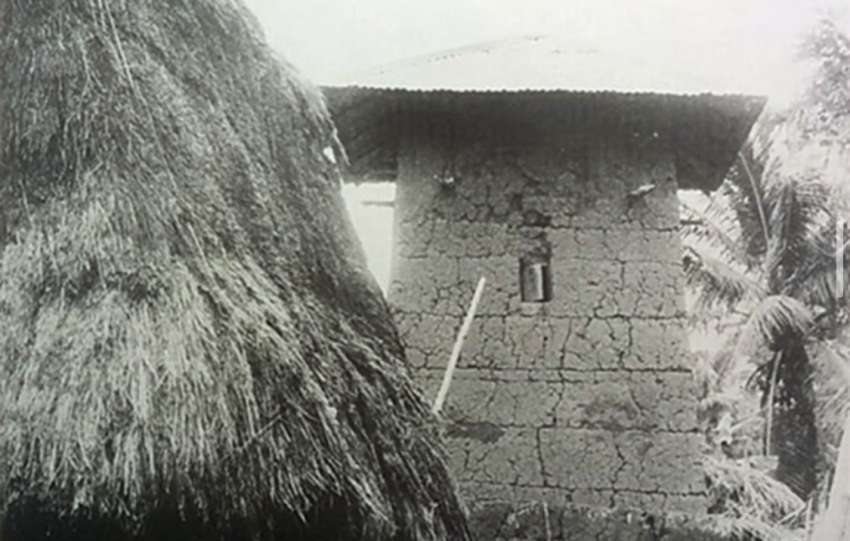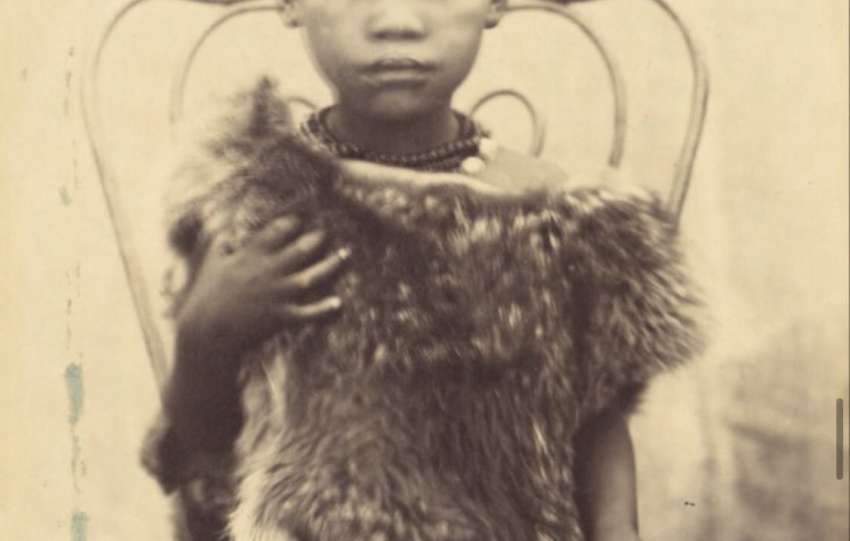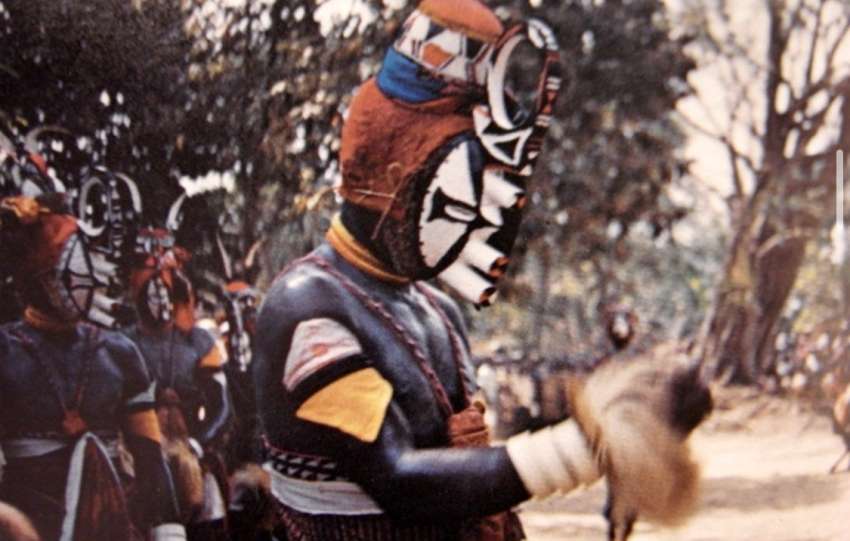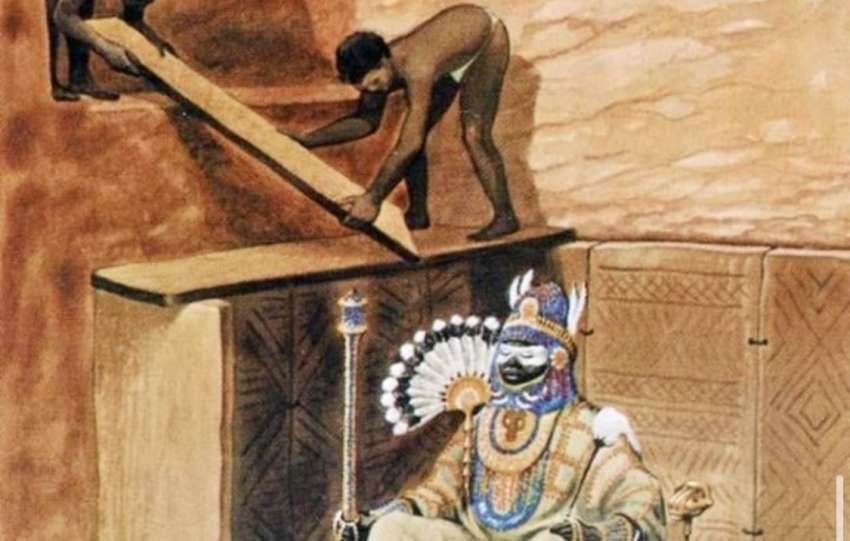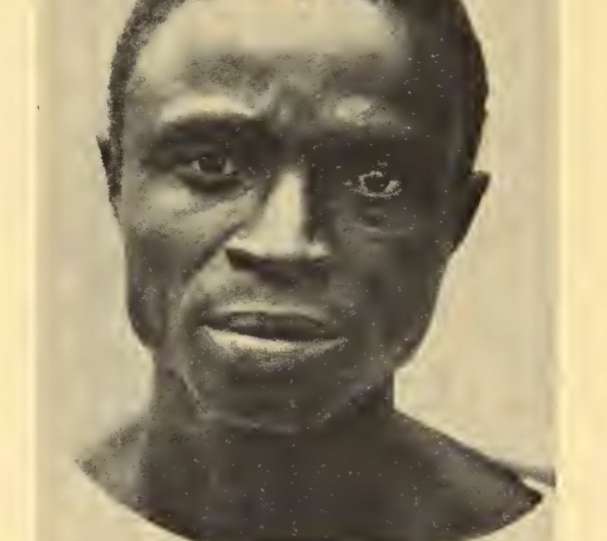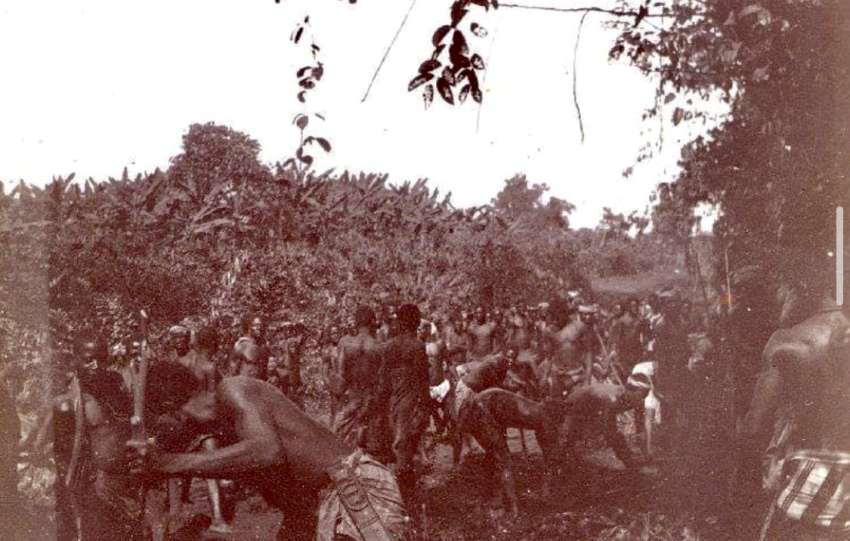Ndi-Ichie with Okpu Ogịdị, Ofala Festival, Onitsha photo by @Owusi on X/Twitter.
An Ndi-Ichie [titled elders] of Onicha (Onitsha) wearing an ogidi headdress also referred to as nnukwu okpu or the 'Great Crown,' mainly worn by titled men of Onitsha during the towns annual Ofala festival.
The term “Nnukwu Okpu” translates to “large cap” in Igbo. It…
